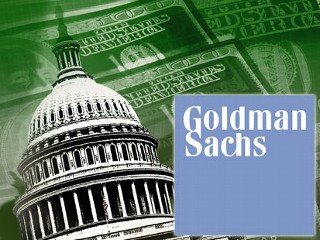The Paulson Plan May Be In Jeopardy
And that is a good thing, in my opinion.
A high-profile White House meeting on Treasury’s $700 billion Wall Street rescue plan ended on a sour, contentious note Thursday after animated exchanges among lawmakers laced with presidential politics just weeks before the November elections.
Treasury Secretary Henry Paulson came up to the Capitol hours later to revive talks, but House Republicans did not participate, and Democrats warned that the whole process could collapse unless President Bush gets them to come to the table.
“Unless this fourth leg shows up at some point, this could fall off very quickly,” said Senate Banking Committee Chairman Christopher Dodd (D-Conn.).
I am personally not convinced that a bail out is necessary at this point. I am also pretty damned sure that the Paulson/Bernanke bailout is a bad plan. Not only does it now appear that the plan is based on little or no sound analysis, but also just the way the plan will work is bad as well. Basically going around to financial institutions and buying up their toxic assets strikes me as a way to waste $700 billion. The problem with the toxic assets is that nobody knows exactly how much they are worth. The people who would buy them don’t want to buy them at the price the banks want to sell them for. Thus, if the government buys them and the banks willingly sell them it is pretty much a given that the U.S. government is paying too much for them.
And what is the point of such a bailout? To prevent a massive credit crunch that could virtually paralyze the U.S. economy and likely the rest of the world’s economy as well. I’ve joking posted about just adding $700 billion to money supply…which the more I think about it is probably the better idea. Sure you might be thinking, “Why that is inflationary!” Hello, think McFly. What do you think credit is? Deflationary? In fact, this is precisely the policy the government finally pursued during the Great Depression. By not going of the Gold Standard right away it contracted the money supply leading to deflation. Countries that went off the Gold Standard started growing again.
One could argue that we are not in a recession let alone a depression. I could then respond that preventing such a thing is a good idea. In fact, I’m coming around more and more to the idea of just pumping another $700 billion into the economy. Can’t be worse than the Paulson “plan”.






Spoken like a true liberal, Steve! (and I thought most of you were journalists, who could actually write and edit their own stuff. Guess I was wrong).
Kind of a side comment, but you are the only libertarian-leaning person I have ever heard actually argue for going off the Gold Standard at all, for any reason. Most of them seem to hold it as sacred.
I know little of economics. So, I don’t know the answer to the current situation. I only observe that the worst ideas tend to come when the government a)intervenes b)acts in haste and c)works in a highly bipartisan manner.
I’m betting limited or no government intervention in this will produce the best outcome. But again, that’s just an observation and is not based on, well, any profound economic understanding.
My way of thinking is pretty much with Brian.
I am not convinced this plan or really any plan will make things better, and I think the government needs to wean big businesses away from thinking the taxpayer will come in to protect them from their risks.
My vastly limited understanding of the financial system and the “crisis” therein keeps me from adding anything of value except that if Barney Frank is truly as mad about the Paulson plan going up in smoke as he is quoted…then it’s prolly a good thing.
Congress’s answer to the problem is to load the solution up with pork (Detroit, ACORN), and, also to keep the mortgage finance problem in place.
I heard a Congressman yesterday say there is one trillion dollars sitting on the sidelines. He suggested that the way to smooth the waters was to have a two year capital gains tax moratorium and let the market move in.
I am all for a solution which keeps Congress’s grubby hands off my money.
I’m not doctrinaire Brett. I’ve never understood the fascination with the gold standard myself. There ways to achieve similar results with a fiat money system so for me it has never been sacrosanct. That and I like to think of myself as somewhat data driven. Sticking to the gold standard economies sucked during the 1930s, leaving economies grew. Pretty decent evidence that adhering to the gold standard was part of the problem.
There is no Paulson plan. It was dead on day one, and everything they were working on the past few days and thought they had an agreement on was not even remotely near the Paulson plan.
Just to refresh, the Paulson plan was “You give me a boatload of cash and then wank off.”
Claiming the Paulson plan is almost dead is to fundamentally not understand what is going on right now, as the Paulson plan does not exist at all in current discussions.
“http://online.wsj.com/article/SB122230704116773989.html?mod=rss_opinion_main”
I’ve seen this in a few places, and based off of my limited knowledge of economics, it makes sense. If you can poke holes in it, please do so… I was against the plan before I read this take.
If it really comes down to the government having big enough pockets to afford to buy the clusterf*cks that are the bundled mortgages at a DEEP discount, scrubbing them then reselling the good ones at more realistic market prices, I’m not sure this qualifies as a bailout, or even a bad idea. But please let me know if my take on this is wrong.
The problems I see are in the assumptions:
1) That the government is buying a mix of good and bad debts. More likely the government is buying a mix of bad and terrible debt. I’m not convinced they will have much that people want to buy, no matter how long they hold it.
2) That the government will hold the debts long enough for them to get paid back. If politicians get elected today promising to cut taxes, what do you think they will promise when they have the power to cut voter’s debt directly?
True, but even if we buy terrible debt, if we buy it at firesale prices we’ll probably make money off them.
It doesn’t matter how little you pay for something that’s worthless, you’re going to lose money. Besides, if we paid market value for the assets, it won’t help the economy, and if we pay above market value, it’s not exactly a fire sale price.
This plan helps 2 groups of people – people who don’t pay their mortgages and brokerage house managers who think they can lay off their risk on taxpayers – possibly the two groups of people in the world I’d be least inclined to help.
No, the point is that we DON’T pay market price for the bundles, we get them for pennies on the dollar. The companies who hold these loans now get soaked, but get to trade illiquid junk for needed cash. Then the government seperates the good from the bad from the horrible and unloads what it can when the market recovers.. which should be soon because the real drag has been uncertainy of how much bad debt is out there and where it is.
It’s a real risk, but the reality is that the government may be the only entity with the cash to take that risk. And if the government loses a lot of money on the deal, it may still end up better off than it would have if it let the markets melt by not taking the risk. So it may be a horrible option, but it may still be the best option.
Additionally, if I were putting this thing together, all the bad debt we can’t move would go to the IRS. People may be more motivated to work something out if they weren’t going to get a tax return for 30 years, and if not the government at least gets that much back.
The thing that really bothers me about this is that government caused this problem, and now they are in position to screw over the mortgage companies and possibly make money off their mistake. EVERYONE will suffer because of this, except the people responsible for it: Raines, Johnson, Gorelik, Dodd, Frank and any republican who actively worked to make this crisis likely.
Pennies on the dollar is the current market price. If we buy them at what they’re currently valued at, the banks holding them are no more solvent than they are now, less so if you’re optimistic about the actual value of these assets.
It’s not so much the uncertainty of the value, its that the market is pretty sure of the value, and it’s too low for the banks holding them to be solvent. If it turns out that the market it right about their real value, the government gets stuck with crap that nobody will buy for anything close to what it paid for them.
The government may have been a player in this problem, but they were hardly the primary cause, unless you subscribe to the Bithead conspiracy that it’s all the fault of affirmative action.
You miss my point… we will pay pennies on the dollar with regards to current market price, which as you point out is already a substantial undervaluation.
The government created the regulation that encouraged banks to make stupid loans, then created 2 vehicles to allow those banks to hide and profit from those stupid loans in Freddie and Fannie. Then the government allowed themselves to be bought to look the other way while it all went to hell. If that what you consider “a player” so be it. If you want to try and paint the people who have pointed out that the whole system was bound to fail since the late 90s as racists.. well that seems to be the last recourse of you liberals lately so at least you’re consistent.
No, I get your point, I’m saying that your math doesn’t make sense. If these banks are in trouble because their assets are currently valued at some low value X, buying them for some value X-Y will make the company’s financial standing worse, not better. The only way to help them is to buy the assets for some value X+Y, above market price, so that the purchase will increase the company’s capital.
Everything the government did was in line with what the industry was requesting. You can blame the government for getting played, for not doing enough, but you can’t blame them for causing this.
I think I have a pretty good track record of not playing the race card, so I don’t know where you’re coming from with that. I’m not accusing Bithead of being racist, I know he’s not, but he sees affirmative action as an example of government evil, and so he’s blaming the crisis on something he already hates. It’s convenient for him, and helps reenforce his own ideas of who is good and bad, but it doesn’t really provide answers.
As I said, the companies take a bath, but they get needed cash. It doesn’t matter how much those bundles are worth on the market if they can’t move them.
So your stand is that the government didn’t want to engineer a social program but were tricked into it? Have you managed to miss EVERY liberal government officials desires for “social justice” over the last few decades? Your problem is that you don’t want to admit that government forcing social programs on a free market is a horrible idea, so you need to shift the blame to the free market. Talk about “blaming the crisis on something [you] already hate[].”
I still don’t understand how lowering the value of their assets is going to help them.
I’m saying that both the government and the private sector believed that less regulation would result in a healthier market. I don’t think either side thought it would lead to our current problems.
No, I admit that the government forcing social programs on a free market is a bad thing. The problem is that sometimes the natural course of the free market isn’t what is desired by society.
I like free markets for the benefit they offer to society, not for the benefit the offer to the market. Usually those interests are inline, but when they diverge I will prefer the course that benefits society.
Again, I think I have a pretty good record of being fiscally more conservative than liberal, so I don’t know where you’re coming from with that.
“I’m saying that both the government and the private sector believed that less regulation would result in a healthier market. I don’t think either side thought it would lead to our current problems.”
Deregulation DID NOT lead to the crisis, DUMB REGULATION did, which is what I’ve said in pretty much every comment I made here. The government actually created MORE regulation, such as “mark to market” and the CRA, which is what has lead to the meltdown.
The problem with government meddling on markets to “benefit society” is that government thinks short term due to constant elections. What benefits society short term rarely benefits them long term, and this crisis is a perfect example. Government thought it would benefit society to have more home ownership, and that sounds like a good thing. But, again, as we see here just mandating that markets alter their practices to meet an arbitrary goal is disaterous long term, so they actually harmed society. Remember what they say about the road to hell…